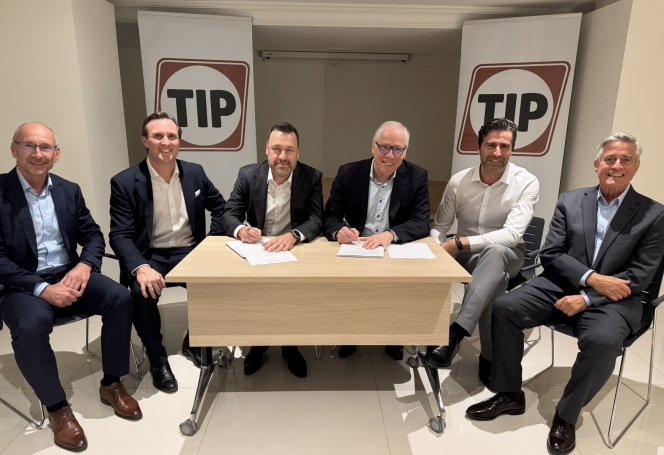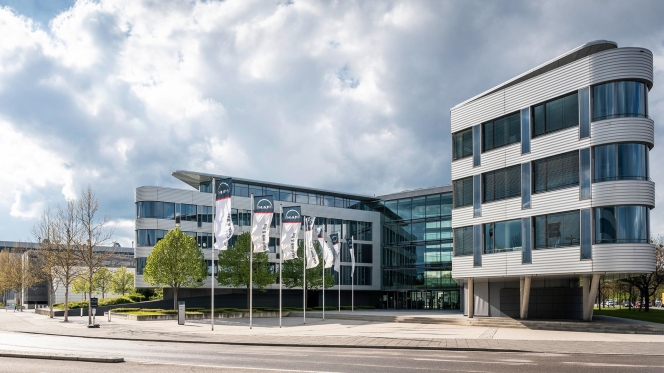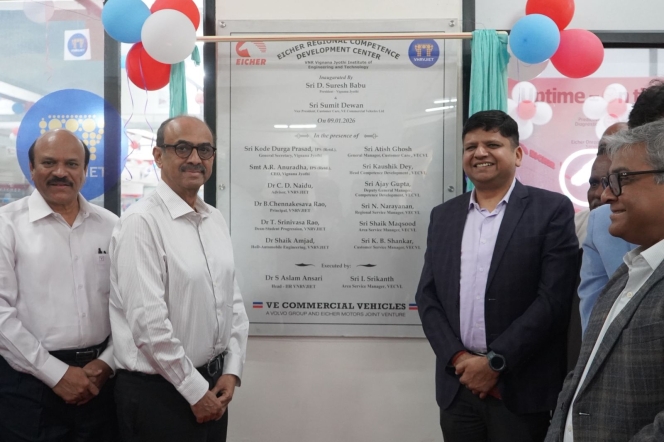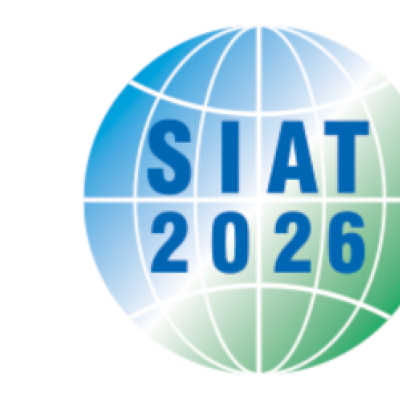John Deere Completes 25 Years In India
- By Juili Eklahare
- February 22, 2023

John Deere completed 25 years of its services in India this year. On this occasion, a press meet was held at the John Deere factory in Pune, India today. Ramakant Garg, Director – Sales and Marketing, John Deere India; Shailendra Jagtap, Managing Director and Country Manager, John Deere India; and Mukul Varshney, Director – Corporate Affairs, Media, PR and Communications for John Deere in India, Africa, Middle East, Southeast Asia and Asia Pacific addressed the media.
Over its 25 years, John Deere has shown commitment to investment in manufacturing and product development in India, including –
• Tractor manufacturing locations in Pune (Maharashtra) and Dewas (Madhya Pradesh).
• Electronics system manufacturing in Pune (Maharashtra).
• India Engineering Centre in Pune (Maharashtra).
• Enterprise Technology Centre in Pune (Maharashtra).
• Global IT Centre in Pune (Maharashtra) and Bengaluru (Karnataka).
• Parts Distribution Centre in Nagpur (Maharashtra) and Indore (Madhya Pradesh).
• John Deere Finance in Pune (Maharashtra).
• 1,200 touch points under 580 channel partners across the country, 22 branch offices and four zonal training centres.
• Wirtgen Group, a John Deere Company Pune (Maharashtra).
John Deere has continued to innovate, invest and leverage manufacturing, talent and India’s supply chain through these 25 years to serve farmers in India and around the world – all designed to enhance farm productivity through technologically-advanced products and services. The latest example is the 5M series tractor and a production system approach that offers higher horsepower, advanced features and precision technology aimed to reduce the cost of farming operations and enhance income levels. The introduction of John Deere’s products and solutions are recent examples of the company’s efforts to provide farmers a wide range of technologically-superior farm solutions including tractors, harvesters and hi-tech implements.
Jagtap asserted that John Deere is leading the way to bring technologies to tractors and farm equipment that lower the overall cost of farm operations by reducing the number of operations needed in the field and efficient use of fertilisers and chemicals. These are essential for additionally meeting sustainability goals and reduced emissions – both of which help meet Deere’s strategic ambitions to protect the environment. For instance, he said that the introduction of technologies such as a front PTO (power takeoff) and specially designed front farm implements have helped reduce the cost of some operations by more than 25 percent while also reducing greenhouse gas emissions.
Varshney said, “John Deere is the world’s leading manufacturer of agriculture and turf equipment, products and solutions also serving the construction and forestry industry. It is uniquely positioned to deliver both economic and sustainable value for our customers through advanced technology and solutions. Our 25-year journey in India has witnessed a transformation in Indian agriculture as well. At John Deere, we are truly living our higher purpose – We run so life can leap forward.
Jagtap cited, “Our journey in India began 25 years ago with the introduction of advanced product features such as power steering, oil immersed disk brakes, planetary reduction, force feed lubrication, high torque machines and value-add technologies, such as front PTO, perma clutch, AutoTrac, PowrReverser and JDLink. John Deere continues to innovate and introduce these advanced features in India which are now becoming industry standard. The farmers ’outlook is progressive, and they adopt technologies when they see value and cost benefits.”
Jagtap went on to share that Deere remains committed to support the food security mission of the country as well as the changing dietary requirements of the growing populations. He additionally noted that Deere is proud to lead India from subsistence farming to agri-entrepreneurship. “Our efforts for a wholistic farm solution and inclusion of women farmers in the farm mechanisation journey have been immensely valued by our customers. We see pride in their families as we help women farmers skill themselves and become economically independent,” he said.
John Deere also provides financial solutions for wholesale as well as retail customers. For any country, agriculture is vital for its economic stability, inclusive growth and food security. Jagtap mentioned that when it comes to agriculture, there are some challenges like soil erosion, limited energy resources and growing population. He averred, “We need to reduce the impact on the environment while carrying out agriculture. When we bring in a technology or product or solution, we need to take care of the soil and the environment.”
Adding to this, Garg said, “We continue to make technologies that also improve the comfort and convenience of the farmers. The need of an equipment varies according to the geography; we provide the same as per the climate of a place and the financial solutions. Many of the technologies introduced way back in 2000 have become technology norms over time.”
MAN Truck & Bus And TIP Group Ink EUR 160 Million Framework Agreement For 1,800 CVs
- By MT Bureau
- January 20, 2026

MAN Truck & Bus and TIP Group have entered into a framework agreement for the delivery of up to 600 commercial vehicles annually over the next three years. The contract includes up to 1,800 units across all weight classes, ranging from 7.5 to 42 tonnes and covers operations in 18 European countries. The agreement, which includes both diesel and battery-electric trucks, has a total order value of up to EUR 160 million.
The diesel vehicles supplied will feature the PowerLion drivetrain, incorporating the D30 engine and TipMatic-14 transmission. According to the automaker, these aerodynamic updates reduce fuel consumption and CO2 emissions by up to 5 percent compared to previous models. In the electric segment, the contract includes the eTGL, eTGX and eTGS models. Depending on battery configuration, these vehicles offer claimed ranges between 310 km and 830 km.
The electric heavy-duty models are equipped with Combined Charging System (CCS) connections supporting up to 375 kW. From mid-2026, these models will support megawatt charging up to 750 kW. MAN produces both drive types on a single assembly line at its Munich plant to manage market demand and production costs.
TIP Group, which manages a fleet of over 90,000 assets, will utilise MAN service contracts to manage maintenance and repairs across its European network. These contracts provide fixed monthly rates to ensure cost transparency and vehicle uptime for rental customers.
Friedrich Baumann, Executive Board Member for Sales & Customer Solutions, MAN Truck & Bus, said, “With the new framework agreement, MAN Truck & Bus and TIP Group are sending a strong signal for the future of freight transport. We are pleased to accompany TIP as an important partner on the path to sustainable logistics – with efficient diesel trucks and innovative battery-electric vehicles. This agreement underscores the trust in our products and services and shows how we are jointly driving the transformation of the industry forward.”
Arjen Kraaij, CEO, TIP Group, said, “Supporting customers through the transition means offering the right solutions at the right time. By working closely with partners like MAN, we can expand our fleet with both highly efficient diesel trucks and electric trucks, giving operators practical choices that balance performance, cost efficiency and sustainability.”
Gulf Oil Lubricants Inks Strategic Partnerships With ACE, Ammann India And XCMG
- By MT Bureau
- January 19, 2026
Gulf Oil Lubricants India has established strategic alliances with three construction equipment manufacturers – ACE (Action Construction Equipment), Ammann India and XCMG. These agreements are intended to expand the company’s presence in the infrastructure segment by providing equipment-specific lubricants for the Indian market.
As part of the collaboration with ACE, Gulf has added new products to the ACE Genuine Oil range, covering machinery such as cranes, backhoe loaders, motor graders and tractors. For Ammann India, which holds a 60 percent market share in asphalt mixing plants, Gulf will serve as the official partner for its entire equipment range. This includes the development of formulations for future machinery. Additionally, Gulf will launch branded lubricants for XCMG to support its range of construction equipment within India.
Alongside these alliances, Gulf has introduced a range of specialised products including fire-resistant hydraulic oil, zinc-free hydraulic oil and CEV V diesel engine oil. These formulations are engineered to meet the requirements of new-generation equipment while improving uptime and reducing the total cost of ownership for contractors.
The company currently manages over 50 OEM associations across the automotive, industrial, and construction sectors. These partnerships are a component of Gulf’s strategy to provide technical services and product selection tailored to Indian operating environments.
Ravi Chawla, Managing Director & CEO, Gulf Oil Lubricants India, said, “Infrastructure has been a strategic focus area for Gulf for over 15 years, and these partnerships mark a significant step forward in strengthening our presence in this growing sector. By working closely with leading OEMs like ACE, Ammann, and XCMG, among others, we are able to deliver application-specific, future-ready lubricant solutions for new generation equipments that help customers improve equipment reliability, reduce downtime, and optimise total cost of ownership. We firmly believe that long-term value is built through strong, enduring partnerships.”
MAN Truck & Bus Plots EUR 1 Billion Investment In Germany By 2030
- By MT Bureau
- January 17, 2026

German commercial vehicle major MAN Truck & Bus has reached an agreement with employee representatives and the IG Metall union on its MAN2030+ programme. The initiative is designed to reduce costs by approximately EUR 900 million by 2028 while funding investments of almost EUR 1 billion in the company’s German locations by 2030.
The programme includes the development of vehicle generations based on the TRATON Modular System (TMS). Production and R&D investments will be made in Germany and Eastern Europe, where the group plans to establish a battery factory to support the transition to electric heavy-goods vehicles and buses.
The agreement secures the jobs of employees at MAN Truck & Bus in Germany until at least 2035, with a potential extension to 2040 based on sales and earnings performance. All German production sites will be retained. The company plans to adjust its workforce by 2,300 jobs over the next decade through natural fluctuation and demographic trends, avoiding redundancies or severance schemes.
Alexander Vlaskamp, CEO, MAN, said, “Following intensive negotiations, we have now reached agreement with our employee representatives on the implementation of key cornerstones of the MAN2030+ program. The plan secures MAN’s competitiveness and guarantees our customers a broad product portfolio as a full liner, which forms the basis for the company’s future success. This will enable us to secure the jobs of our current employees also in the future. With our continued high level of investment in Germany, we are fulfilling our industrial policy responsibilities. We will now consistently implement the long-term MAN2030+ program in order to counteract intensifying competition, changing market conditions and major regulatory risks at an early stage."
The EUR 900 million cost reduction will be achieved through savings in material and overhead costs, as well as sales performance improvements. The company has ruled out wage cuts and committed to continuing profit-sharing payments and above-tariff benefits.
Karina Schnur, Chairwoman of the General Works Council, MAN Truck & Bus, said, “The discussions were not easy, but they were always respectful and constructive, and from the perspective of co-determination and IG Metall, they have now resulted in the best possible compromise for our employees and the company. The agreement sends a very strong signal regarding the security, stability, and future prospects of our employees. With this agreement, we are securing the jobs of our colleagues at MAN until at least the end of 2035. And we are doing so without interfering with collectively agreed benefits. In addition, we were able to agree on profit sharing for employees and the payment of benefits above the collective agreement level – which means that MAN will remain an attractive company for future generations. Furthermore, we are securing the long-term preservation of our German locations. At the same time, we are creating the freedom to continue investing significantly in our German locations and the future of MAN.”
The programme also prioritises vocational training, with MAN committing to hire trainees amounting to at least 2 percent of the permanent workforce annually. By the mid-2030s, the company expects to employ approximately 13,000 staff across its German operations.
Volvo–Eicher Establishes Regional Competency Development Centre At VNR VJIET
- By MT Bureau
- January 13, 2026

In a strategic commitment to cultivating advanced technical expertise in South India, Eicher (VE Commercial Vehicles Limited) has established a long-term Regional Competency Development Centre at VNR Vignana Jyothi Institute of Engineering & Technology (VNR VJIET) in Hyderabad. This significant investment underscores Eicher's dedication to fostering industry-ready talent and enhancing the practical skills of its own workforce and network. The centre, inaugurated for an initial 10-year term, represents a core component of Eicher's vision for collaborative innovation and sustainable skill development within the automotive sector.
The newly inaugurated facility is equipped with a comprehensive range of operational vehicles, including diesel and electric models, alongside specialised diagnostic equipment and cut models of vital automotive systems. This infrastructure is designed to provide immersive, hands-on learning for Eicher employees and dealer partners from the Telangana and Andhra Pradesh regions. Furthermore, it creates a vital bridge to academia, offering students and faculty from key engineering disciplines direct exposure to current industry technologies and real-world automotive systems within their academic environment.
This initiative is fundamentally driven by Eicher’s objective to support sustained knowledge advancement and create a robust pipeline of skilled professionals. By enabling structured training on modern vehicle technologies, the partnership actively contributes to shaping the future of the automotive industry. It reflects Eicher's proactive approach to integrating industry practice with engineering education, thereby strengthening the ecosystem that supplies the next generation of engineers and technicians.
D Suresh Babu Garu, President, Vignana Jyothi, said, “Being selected by a global automotive leader such as Volvo–Eicher to host a Regional Competency Development Centre is a strong validation of VNR VJIET’s focus on industry-aligned education. This collaboration strengthens our commitment to providing students with the best facilities, real-world exposure and future-ready skills that meet national and global standards.”
Sumit Diwan, National Head – Customer Care, VE Commercial Vehicles Limited, said, “This Centre reflects our long-term approach to capability building and talent development. By investing in advanced infrastructure at VNR VJIET and training students alongside our workforce, we are creating a strong pipeline of skilled engineers equipped for evolving automotive and electric mobility technologies. We plan on hiring students from Automobile Engineering (AE) department and encourage greater participation of female students in the recruitment process.”







Comments (0)
ADD COMMENT